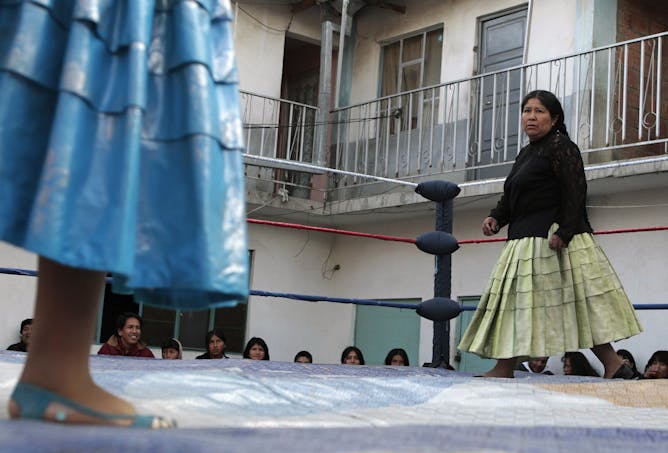|
|
|
Editor's note
|
|
It can seem like everything about your diet is environmentally problematic. You’ve been told not to eat meat. You’ve been told you should be vegan, but that you shouldn’t eat avocados if you don’t live in Mexico, and that drinking almond milk is also problematic. You’ve been told that you should only source local produce, but not in all cases – if you live in the UK, apparently Spanish tomatoes can be more sustainable than British ones.
These messages are out there for a reason – the global food system is indeed in crisis, and the future of food looks bleak if nothing changes. But according to Mike Hamm, the solution is not as simple as changing what you eat (although that is part of it). The system can become the solution rather than the problem, if we make some radical changes to it. He lists eight ways we can avert a food crisis – including changes to supply chains,
farming practices and new reward structures for farmers, as well as altered consumption patterns.
Meanwhile, get a glimpse into what the UK public really think of migration and find out how to avoid putting your child off reading.
And artificial intelligence is increasingly becoming part of our lives, but how far are we from creating a machine that could successfully perform any intellectual task that a human can? For The Conversation’s latest event in partnership with the Royal Institution, we’ve brought together four leading experts – Wendy Hall, Bradley Love, Adam Stanton, and Raia Hadsell – to discuss whether we’ll see artificial general intelligence within our lifetimes and what it means for humanity. Tickets for tonight’s event in London are available here.
|
Josephine Lethbridge
Interdisciplinary Editor
|

|
|
Top stories
|

Stockr/Shutterstock.com
Michael Hamm, University of Oxford
The food system urgently needs to be redesigned if we are to avoid crisis.
|

Two women wrestlers square off in La Paz.
Reuters/David Mercado
Nell Haynes, Georgetown University
The more they fight, the more popular they become – and the more pushback they receive.
|

William Perugini/Shutterstock
Lauren McLaren, University of Leicester; Anja Neundorf, University of Nottingham; Ian Paterson, University of Glasgow
New research found persistent differences between generations of people in the UK when it comes to their attitudes to immigration.
|

shutterstock
Isang Awah, University of Cambridge
When it comes to reading, choosing the books your child reads, forcing them to read at certain times and asking them questions about their books are all big no nos.
|
Business + Economy
|
-
Dan Plumley, Sheffield Hallam University; Rob Wilson, Sheffield Hallam University
The lesson from other sports is clear: women's football must be broadcast on free-to-air if it isn't to disappear.
-
Aristea Koukiadaki, University of Manchester; Geoff Pearson, University of Manchester
Survey of 3,000 players in 33 different countries outlines how difficult it is for women footballers.
-
Michael Kitson, Cambridge Judge Business School
The main distinguishing feature of Osborne’s policy record was presiding over one of the worst economic recoveries in British history.
|
|
Health + Medicine
|
-
Naveed Sattar, University of Glasgow
Scotland successfully targeted its smoking problem, now it needs to do the same for obesity.
-
Candice Lingam-Willgoss, The Open University
A young athlete's support network is key to their development and performance, according to sports psychologists.
-
Naomi Warne, Cardiff University; Ruth Sellers, University of Sussex
UK research indicates outcomes for children with mental health problems may have become worse in more recent generations.
|
|
Politics + Society
|
-
Umut Özkirimli, Lund University
Nativist rhetoric is nothing new. But ideas once considered fringe are now being absorbed into the mainstream.
-
Richard Carr, Anglia Ruskin University
The MP has been suspended again but will the party leadership readmit him if a snap election is on the cards?
|
|
Science + Technology
|
-
Deborah Talmi, University of Manchester
Scientists may have worked out how emotions shape the memory processes.
-
Dimitri Veras, University of Warwick; James Blake, University of Warwick
Asteroids have played a key role in our history and will continue to do so in the future.
|
|
Environment + Energy
|
-
Pip Roddis, University of Leeds
Huge survey shows more than 80% of British people support for solar, but just 18% want fracking.
|
|
Arts + Culture
|
-
Dr Robin Jackson, Loughborough University
A sport psychologist on how sportspeople are taught to handle high-pressure situations.
|
|
| |
| |
| |
| |

|
| |
| |
| |
Featured events
|

|
University of Portsmouth, Portsmouth, Hampshire, PO1 3DE, United Kingdom of Great Britain and Northern Ireland — University of Portsmouth
|

|
Bowland Auditorium, Berrick Saul Building, Campus West, York, York, YO10 5DD, United Kingdom of Great Britain and Northern Ireland — University of York
|

|
Berrill Lecture Theatre, Walton Hall, The Open University, MK6 7AA, Milton Keynes, Buckinghamshire, MK6 7AA, United Kingdom of Great Britain and Northern Ireland — The Open University
|

|
King's Manor, York, York, YO1 7EP, United Kingdom of Great Britain and Northern Ireland — University of York
|
|
|
|
| |
| |
| |
| |
| |
|
|
|
|
|
|
|